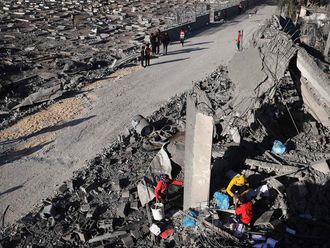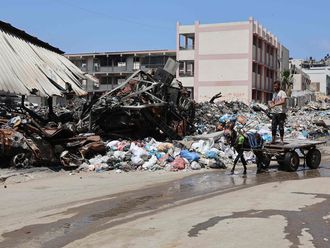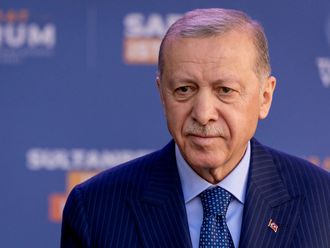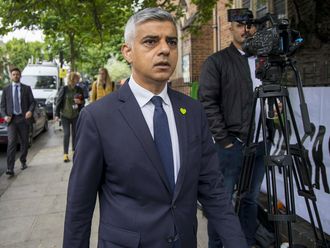London: Worries of Israel striking Iran might or might not be overblown but across the region the largely hidden "cold war" between Tehran and its enemies is escalating fast, bringing with it wider risk of conflict.
Speculation Israel might attack Iran's nuclear programme has been rife in the Israeli media and oil markets in recent weeks, with concerns that Tehran might retaliate with devastating attacks on Gulf oil shipments.
But that debate, experts say, misses large parts of the bigger picture. An increasingly isolated Iran alarms not just Israel and the West but its Gulf neighbours, especially longtime foe Saudi Arabia, and they are already fighting back — and the confrontation goes well beyond simply tightening sanctions.
From proxy wars in Iraq and Syria to computer worm attacks and unexplained explosions in Iran — to allegations of an assassination plot in Washington — a confrontation once kept behind the scenes is breaking into increasingly open view.
The storming of Britain's Tehran embassy last week — and the tit-for-tat shutdown of Iran's embassy in London — were just the latest signs that already limited dialogue is beginning to break down. That, analysts say, is inherently dangerous.
"With Iran, you have a government that is increasingly isolated and acting in increasingly unpredictable ways," says Jon Alterman, director of the Middle East programme at the Centre for Strategic and National Studies in Washington.
"There is certainly the risk that a country will take the deliberate decision to attack Iran. But there is also the risk that something happens that provokes... a war that nobody planned and nobody wants." With the Eurozone crisis still far from over and worldwide demand already faltering, such action and the resulting oil price surge could be disastrous for the global economy.
Confrontation is, of course, far from new. Tehran has long used groups such as Lebanon's Hezbollah and Hamas in the Palestinian territories to shape regional politics and strike enemies, particularly Israel. The United States and Britain long accused Iran of using Shiite militias in Iraq to kill Western troops and impose Tehran's agenda.
The Sunni-ruled states of the Gulf, particularly Saudi Arabia and Bahrain, say Iran stirs up unrest in their Shiite communities, although many Western analysts believe blaming Iran for protests this year in those countries is an overstatement or at least oversimplification.
‘Leaving a vacuum'
Many such confrontations across the region appear to be escalating fast — and becoming much harder for Washington and its allies to control.
"US and Western power in the region is weakening, and that is leaving a vacuum — most notably in Iraq — and you can see the main stakeholders in the region reacting to Iran's readiness to fill that vacuum," says Reva Bhalla, head of analysis at US private intelligence company Stratfor.
This year's uprising in Syria — Iran's rare Arab friend — has created a new battlefield. Since the early days of the uprising, US officials repeatedly and pointedly said they believed Syrian President Bashar Al Assad's government was receiving support from Tehran.
Al Assad has since been rapidly abandoned by the Arab League. Analysts and officials say that could have as much to do with pushing back against Iran as in reining in killings and rights abuses in Syria itself.












